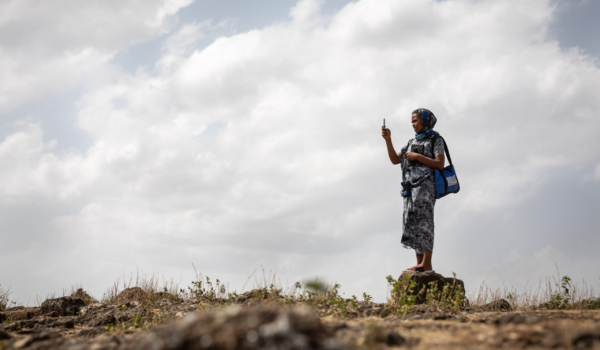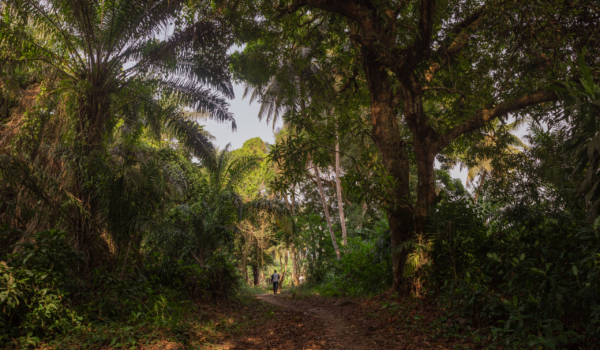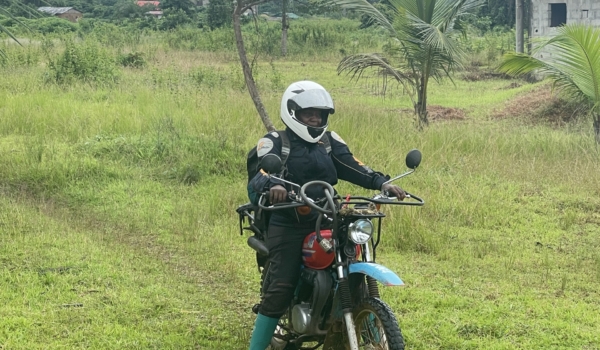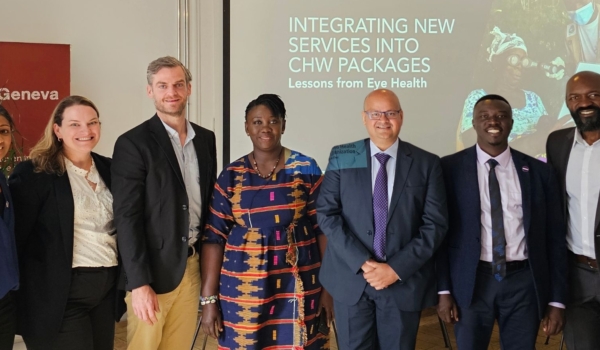Last Mile Health recently traveled to New York City for the 79th session of the United Nations General Assembly (UNGA). Each year, UNGA is a powerful reminder of the movement of people and organizations working to realize universal health coverage—and this year was no exception.
Across dozens of events and meetings, we witnessed the growing momentum for professional community health workers as part of resilient health systems, which are vital to achieving the sustainable development goals. We are proud to be part of a movement keeping professional community health workers on the agenda and at the table.
Here are some of our highlights from the week:
Community health and climate
“Climate change is the greatest threat to global health. Strong, integrated community health programs are an essential tool to help vulnerable communities adapt.” – Lisha McCormick, CEO of Last Mile Health
Last Mile Health hosted “Community health workers at the forefront of climate adaptation” in partnership with Macquarie Group Foundation and Johnson & Johnson. The event featured a fantastic group of speakers including community health workers Margaret Odera, Ramatu Jalloh, and Bupe Sinkala. Speakers highlighted how community health workers are already working as essential responders to the health impacts of climate change, and underscored what is needed to equip them in the response.
Community health and gender equity
“A bigger percentage of women who lack formal education requirements will be locked out of the professional community health workforce and that is not fair.” – Margaret Odera, community health worker and advocate, on the estimated 70% of community health workers who are female
 In partnership with Integrate Health, we convened a discussion on gender equity in the community health workforce alongside the Clinton Global Initiative 2024 annual meeting. The conversation built on our 2023 CGI commitment to action to combat a pervasive problem: the unpaid labor of women in Africa’s community health workforce. We were honored to hear from two heroines of health during the roundtable, Her Excellency Ellen Johnson Sirleaf, former President of Liberia, and Margaret Odera, community health worker and advocate from Kenya.
In partnership with Integrate Health, we convened a discussion on gender equity in the community health workforce alongside the Clinton Global Initiative 2024 annual meeting. The conversation built on our 2023 CGI commitment to action to combat a pervasive problem: the unpaid labor of women in Africa’s community health workforce. We were honored to hear from two heroines of health during the roundtable, Her Excellency Ellen Johnson Sirleaf, former President of Liberia, and Margaret Odera, community health worker and advocate from Kenya.
In the coming month, we’ll publicly launch our Global Framework for Action, a set of 16 recommendations to guide countries, implementers, and policymakers in better supporting women community health workers across their career.
Community health and national leadership
“We must salary community health workers and do what is right, as a matter of equity.” – Dr. James Guwani, Community Health Director, Africa CDC
Community Health Director, Africa CDC
Africa Frontline First (co-founded by Last Mile Health) and Africa Partners Network hosted “A dialogue with African leaders on scaling community health plans.” The event featured perspectives from Ministries of Health, funding partners, and community health workers. Speakers highlighted the importance of supporting nationally-led community health plans to professionalize community health workers.
Community health and a future with health for all
“What happened in Liberia with the Monrovia Call to Action was monumental. [Collectively], we are longer debating the relevance of community health workers, we’re instead talking about implementation.” – Dr. David Walton, U.S. Global Malaria Coordinator
 We attended numerous events that highlighted the critical work of community health workers and continued calls to ensure they are paid for their work and adequately equipped. We saw powerful advocacy from community health workers and heard from essential allies in the movement, including Dr. Atul Gawande, Assistant Administrator of the United States Agency for International Development for Global Health, Dr. David Walton, US Global Malaria Coordinator, and Dr. Sania Nishtar, CEO of Gavi, the Vaccine Alliance.
We attended numerous events that highlighted the critical work of community health workers and continued calls to ensure they are paid for their work and adequately equipped. We saw powerful advocacy from community health workers and heard from essential allies in the movement, including Dr. Atul Gawande, Assistant Administrator of the United States Agency for International Development for Global Health, Dr. David Walton, US Global Malaria Coordinator, and Dr. Sania Nishtar, CEO of Gavi, the Vaccine Alliance.




